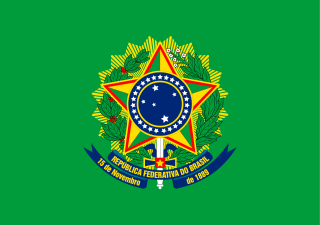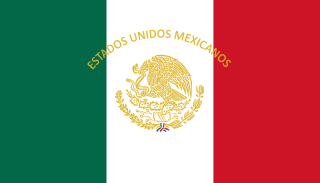Related Research Articles

Impeachment is a process by which a legislative body or other legally constituted tribunal initiates charges against a public official for misconduct. It may be understood as a unique process involving both political and legal elements.
A presidency is an administration or the executive, the collective administrative and governmental entity that exists around an office of president of a state or nation. Although often the executive branch of government, and often personified by a single elected person who holds the office of "president", in practice, the presidency includes a much larger collective of people, such as chiefs of staff, advisers and other bureaucrats. Although often led by a single person, presidencies can also be of a collective nature, such as the presidency of the European Union is held on a rotating basis by the various national governments of the member states. Alternatively, the term presidency can also be applied to the governing authority of some churches, and may even refer to the holder of a non-governmental office of president in a corporation, business, charity, university, etc. or the institutional arrangement around them. For example, "the presidency of the Red Cross refused to support his idea." Rules and support to discourage vicarious liability leading to unnecessary pressure and the early termination of term have not been clarified. These may not be as yet supported by state let initiatives. Contributory liability and fraud may be the two most common ways to become removed from term of office and/or to prevent re-election.
A constitutional amendment is a modification of the constitution of a polity, organization or other type of entity. Amendments are often interwoven into the relevant sections of an existing constitution, directly altering the text. Conversely, they can be appended to the constitution as supplemental additions, thus changing the frame of government without altering the existing text of the document.

The president of Guatemala, officially titled President of the Republic of Guatemala, is the head of state and head of government of Guatemala, elected to a single four-year term. The position of President was created in 1839.

The president of Brazil, officially the president of the Federative Republic of Brazil or simply the President of the Republic, is the head of state and head of government of Brazil. The president leads the executive branch of the federal government and is the commander-in-chief of the Brazilian Armed Forces.

A state of emergency is a situation in which a government is empowered to put through policies that it would normally not be permitted to do, for the safety and protection of its citizens. A government can declare such a state before, during, or after a natural disaster, civil unrest, armed conflict, medical pandemic or epidemic or other biosecurity risk.

A bill is a proposal for a new law, or a proposal to substantially alter an existing law.
In the United States Congress, a joint resolution is a legislative measure that requires passage by the Senate and the House of Representatives and is presented to the president for their approval or disapproval. Generally, there is no legal difference between a joint resolution and a bill. Both must be passed, in exactly the same form, by both chambers of Congress, and signed by the President to become a law. Only joint resolutions may be used to propose amendments to the United States Constitution, and these do not require the approval of the President. Laws enacted by joint resolutions are not distinguished from laws enacted by bills, except that they are designated as resolutions as opposed to Acts of Congress.
A concurrent resolution is a resolution adopted by both houses of a bicameral legislature that lacks the force of law and does not require the approval of the chief executive (president). Concurrent resolutions are typically adopted to regulate the internal affairs of the legislature that adopted them, or for other purposes, if authority of law is not necessary.
The Fundação Nacional dos Povos Indígenas or FUNAI is a Brazilian governmental protection agency for Amerindian interests and their culture.
A provisional measure of protection is the term that the International Court of Justice uses to describe a procedure "roughly equivalent" to an interim order in national legal systems. The order has also been termed in the press as preliminary measures. The carrying out of the procedure is termed indicating the provisional measure of protection. Requests for the indication of provisional measures of protection take priority over all other cases before the ICJ due to their urgency.

The president of Mexico, officially the president of the United Mexican States, is the head of state and head of government of Mexico. Under the Constitution of Mexico, the president heads the executive branch of the federal government and is the commander in chief of the Mexican Armed Forces. The office, which was first established by the federal Constitution of 1824, is currently held by Claudia Sheinbaum, who was sworn-in on October 1, 2024. The office of the president is considered to be revolutionary, in the sense that the powers of office are derived from the Revolutionary Constitution of 1917. Another legacy of the Mexican Revolution is the Constitution's ban on re-election. Mexican presidents are limited to a single six-year term, called a sexenio. No one who has held the post, even on a caretaker basis, is allowed to run or serve again. The constitution and the office of the president closely follow the presidential system of government.

A filibuster is a tactic used in the United States Senate to delay or block a vote on a measure by preventing debate on it from ending. The Senate's rules place few restrictions on debate; in general, if no other senator is speaking, a senator who seeks recognition is entitled to speak for as long as they wish. Only when debate concludes can the measure be put to a vote.
The Congressional Review Act (CRA) is a law that was enacted by the United States Congress as Subtitle E of the Contract with America Advancement Act of 1996 and signed into law by President Bill Clinton on March 29, 1996. The law empowers Congress to review, by means of an expedited legislative process, new federal regulations issued by government agencies and, by passage of a joint resolution, to overrule a regulation. Once a rule is thus repealed, the CRA also prohibits the reissuing of the rule in substantially the same form or the issuing of a new rule that is substantially the same "unless the reissued or new rule is specifically authorized by a law enacted after the date of the joint resolution disapproving the original rule". Congress has a window of time lasting 60 legislative days to disapprove of any given rule by simple-majority vote; otherwise, the rule will go into effect at the end of that period.

An Act of Senedd Cymru, or informally an Act of the Senedd, is primary legislation that can be made by the Senedd under part 4 of the Government of Wales Act 2006. Prior to 6 May 2020 any legislation was formally known as an Act of the National Assembly for Wales or informally, an Act of the Assembly.

The National People's Congress (NPC) is the highest organ of state power of the People's Republic of China (PRC). The NPC is the only branch of government in China, and per the principle of unified power, all state organs from the State Council to the Supreme People's Court (SPC) are subservient to it. With 2,977 members in 2023, it is the largest legislative body in the world. The NPC is elected for a term of five years. It holds annual sessions every spring, usually lasting from 10 to 14 days, in the Great Hall of the People on the west side of Tiananmen Square in Beijing.

The Bayanihan to Heal as One Act, also known as the Bayanihan Act, and officially designated as Republic Act No. 11469, is a law in the Philippines that was enacted in March 2020 granting the President additional authority to combat the COVID-19 pandemic in the Philippines. The word "bayanihan" is a Tagalog word for communal work.
The General Personal Data Protection Law, is a statutory law on data protection and privacy in the Federative Republic of Brazil. The law's primary aim is to unify 40 different Brazilian laws that regulate the processing of personal data. The LGPD contains provisions and requirements related to the processing of personal data of individuals, where the data is of individuals located in Brazil, where the data is collected or processed in Brazil, or where the data is used to offer goods or services to individuals in Brazil.
References
- ↑ "Brazilian President Provisionally Delays LGPD Applicability". Hunton. April 30, 2020. Archived from the original on January 22, 2021. Retrieved March 27, 2021.
- ↑ "Provisional Measures: understanding the allegedly peculiar Brazilian legislative instrument". leidenlawblog. December 3, 2019. Archived from the original on August 10, 2020. Retrieved March 26, 2021.